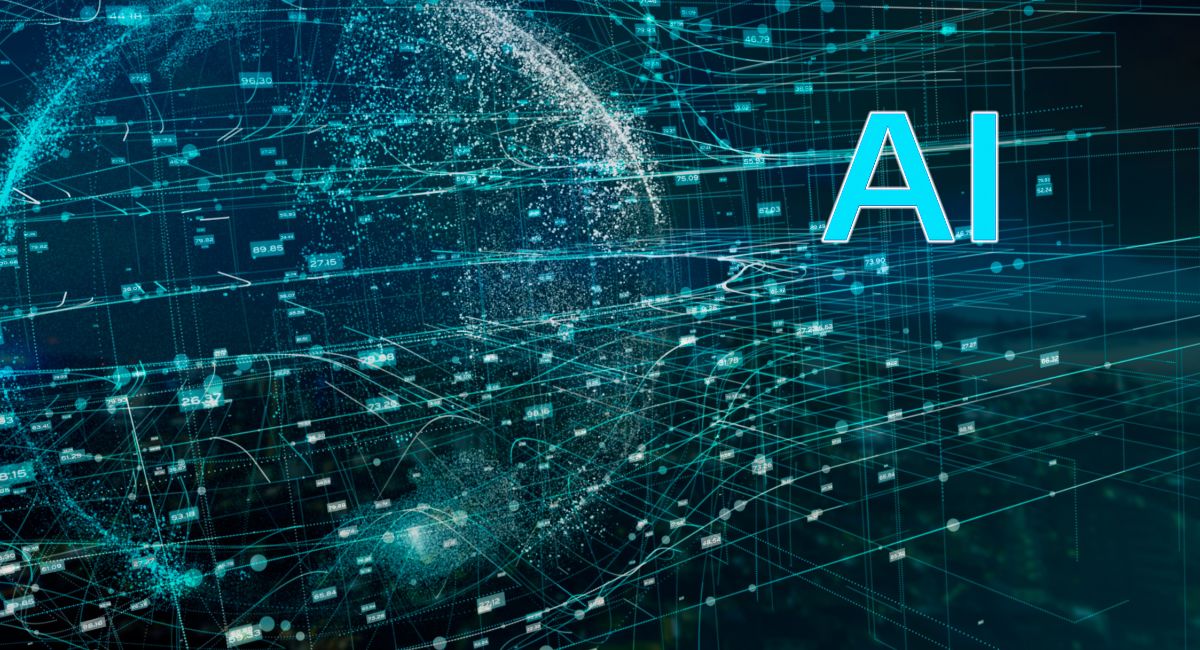What is Generative AI And Will It Affect Metaverse Positively Or Negatively
Generative AI, an advanced form of artificial intelligence, and the Metaverse, a virtual reality space where users can interact with a computer-generated environment and other users, are two rapidly evolving technologies that hold immense potential. In this article, we will explore what generative AI is, define the concept of the Metaverse, and discuss how generative AI will affect this virtual world.
What is generative AI?
Generative AI refers to the application of artificial intelligence algorithms to generate new, unique, and realistic content. Unlike traditional AI systems that rely on pre-defined rules or data sets, generative AI can learn from existing data and generate new content, whether it be images, videos, music, or text. It uses deep learning techniques and neural networks to mimic human creativity and produce content that is indistinguishable from that created by humans.
Also, read – How The Conversational AI Will Change The Face Of Virtual Reality Aka The Metaverse
What is the Metaverse?
The Metaverse is a virtual reality space that allows users to interact with a computer-generated environment and other users in real-time. It is an immersive and interactive digital world where people can engage in various activities, including socializing, working, playing games, attending events, and exploring virtual landscapes. The Metaverse aims to create a parallel universe that blurs the boundaries between the physical and digital realms.
How will generative AI affect the Metaverse?
- Creating Realistic and Immersive Experiences: Generative AI can significantly enhance the realism and immersion in the Metaverse. By generating high-quality graphics, textures, and animations, generative AI can create visually stunning virtual environments that mimic the real world. This technology can simulate realistic physics, lighting, and sound effects, enhancing the overall user experience within the Metaverse.
- Customization of Avatars and Environments: Generative AI can empower users to create and customize their own avatars and virtual environments in the Metaverse. By analyzing user preferences, generative AI algorithms can generate personalized avatars with unique appearances, personalities, and behaviors. It can also assist in designing and customizing virtual spaces, allowing users to create their dream homes, offices, or entertainment venues within the Metaverse.
- Content Generation: Generative AI can revolutionize content creation within the Metaverse. It can automatically generate virtual worlds, games, movies, music, and artwork, reducing the reliance on human creators. This technology enables a constant stream of fresh and diverse content, ensuring a dynamic and ever-evolving Metaverse experience for users.
- Business Presence in the Metaverse: Generative AI can assist businesses in establishing their presence in the Metaverse. It can generate virtual storefronts, advertisements, and interactive marketing campaigns, allowing businesses to showcase their products and services to a virtual audience. This technology can also help in managing customer interactions and providing personalized experiences within the Metaverse, enhancing brand engagement and customer satisfaction.
Touchscreen phones have only been widely adopted for around 20 years or so
New technologies in #metaverse and #AI will make huge strides over the next 10-20 years
Generative NPC AI in virtual environments can change the fabric of society. Imagine @SecondLife on steroids.
— Dr Deeban (@deeban_r) May 21, 2023
Positive Effects of Generative AI on Metaverse
Generative AI is a type of artificial intelligence that can create new content, such as images, text, and music. It is still in its early stages of development, but it has the potential to revolutionize the metaverse.
Here are some of the positive effects of generative AI on the metaverse:
- Increased creativity and innovation: Generative AI can help users to be more creative and innovative. For example, it can be used to create new worlds, characters, and objects. This can lead to new and exciting experiences in the metaverse.
- Improved user experience: Generative AI can be used to improve the user experience in the metaverse. For example, it can be used to create more realistic and immersive environments. This can make the metaverse more engaging and enjoyable for users.
- New business opportunities: Generative AI can create new business opportunities in the metaverse. For example, it can be used to create new products and services, such as virtual goods and services. This can lead to new revenue streams for businesses.
Overall, generative AI has the potential to make the metaverse a more creative, immersive, and profitable place. As generative AI continues to develop, it will become even more powerful and versatile. This will lead to even more exciting and innovative applications in the metaverse.
Here are some specific examples of how generative AI is being used in the metaverse today:
- Decentraland: Decentraland is a virtual world that is built on the Ethereum blockchain. Users can create their own avatars and explore the world, which is made up of 3D assets that have been created using generative AI.
- The Sandbox: The Sandbox is another virtual world that is built on the Ethereum blockchain. Users can create their own games and experiences, and they can also earn money by selling virtual assets that they have created.
- Roblox: Roblox is a popular online game platform that allows users to create their own games and experiences. Roblox has recently announced that it is working on a metaverse platform.
These are just a few examples of how generative AI is being used in the metaverse today. As generative AI continues to develop, it is likely that we will see even more exciting and innovative applications in the metaverse.
Negative effects of generative AI on Metaverse
Generative AI is a powerful tool that can be used to create new content, but it also has the potential to be misused. Here are some of the negative effects of generative AI on the metaverse:
- Fake news and propaganda: Generative AI can be used to create fake news and propaganda that is designed to deceive users. This could be used to manipulate public opinion or to spread misinformation.
- Cyberbullying and harassment: Generative AI can be used to create deepfakes that can be used to impersonate real people. This could be used to bully or harass people online.
- Data privacy: Generative AI can be used to collect data about users without their knowledge or consent. This data could then be used to track users or to target them with advertising.
- Addiction: The metaverse is already being addictive for some people. Generative AI could make the metaverse even more addictive by creating more immersive and engaging experiences.
- Mental health: The metaverse can be a isolating place for some people. Generative AI could make the metaverse even more isolating by creating virtual worlds that are more realistic and immersive.
Overall, generative AI has the potential to be a powerful tool for good or for bad. It is important to be aware of the potential risks of generative AI and to take steps to mitigate those risks.
Here are some of the things that can be done to mitigate the risks of generative AI in the metaverse:
- Educate users about the risks of generative AI: Users need to be aware of the potential risks of generative AI, such as fake news, cyberbullying, and data privacy.
- Develop ethical guidelines for the use of generative AI: There needs to be a set of ethical guidelines for the use of generative AI in the metaverse. These guidelines should address issues such as privacy, safety, and fairness.
- Develop technologies to detect and prevent misuse of generative AI: There needs to be technology that can detect and prevent the misuse of generative AI. This technology could be used to identify fake news, cyberbullying, and other forms of abuse.
By taking these steps, we can help to ensure that generative AI is used for good in the metaverse.
Conclusion
Generative AI has the potential to revolutionize the Metaverse by creating realistic and immersive experiences, enabling user customization, generating diverse content, and facilitating business presence. As generative AI technology continues to evolve and improve, its impact on the Metaverse is likely to grow exponentially. The combination of these two transformative technologies holds promise for a future where users can immerse themselves in a highly realistic and interactive virtual world, limited only by their imagination.
Stay informed with daily updates from Blockchain Magazine on Google News. Click here to follow us and mark as favorite: [Blockchain Magazine on Google News].
Get Blockchain Insights In Inbox
Stay ahead of the curve with expert analysis and market updates.
latest from tech
Disclaimer: Any post shared by a third-party agency are sponsored and Blockchain Magazine has no views on any such posts. The views and opinions expressed in this post are those of the clients and do not necessarily reflect the official policy or position of Blockchain Magazine. The information provided in this post is for informational purposes only and should not be considered as financial, investment, or professional advice. Blockchain Magazine does not endorse or promote any specific products, services, or companies mentioned in this posts. Readers are encouraged to conduct their own research and consult with a qualified professional before making any financial decisions. The featured image used is just a creative depiction of the title and it does not intend to hurt sentiments of any person or institution. If it hurts anyone sentiments, please do not hesitate to reach out to Blockchain Magazine.

 Bitcoin
Bitcoin  Ethereum
Ethereum  XRP
XRP  Tether
Tether  Solana
Solana  Dogecoin
Dogecoin  USDC
USDC  Cardano
Cardano  Lido Staked Ether
Lido Staked Ether  TRON
TRON  Chainlink
Chainlink  Avalanche
Avalanche  Sui
Sui  Wrapped stETH
Wrapped stETH  Wrapped Bitcoin
Wrapped Bitcoin  Stellar
Stellar  Toncoin
Toncoin  Hedera
Hedera  Shiba Inu
Shiba Inu  Polkadot
Polkadot  WETH
WETH  LEO Token
LEO Token  Bitcoin Cash
Bitcoin Cash  Litecoin
Litecoin  Official Trump
Official Trump  Hyperliquid
Hyperliquid  Bitget Token
Bitget Token  Uniswap
Uniswap  Pepe
Pepe  Wrapped eETH
Wrapped eETH  USDS
USDS  NEAR Protocol
NEAR Protocol  Ethena USDe
Ethena USDe  Aave
Aave  Aptos
Aptos  Internet Computer
Internet Computer  Ondo
Ondo  WhiteBIT Coin
WhiteBIT Coin  Monero
Monero  Ethereum Classic
Ethereum Classic  Cronos
Cronos  POL (ex-MATIC)
POL (ex-MATIC)  Mantle
Mantle  Render
Render  Dai
Dai  Bittensor
Bittensor  Algorand
Algorand 




